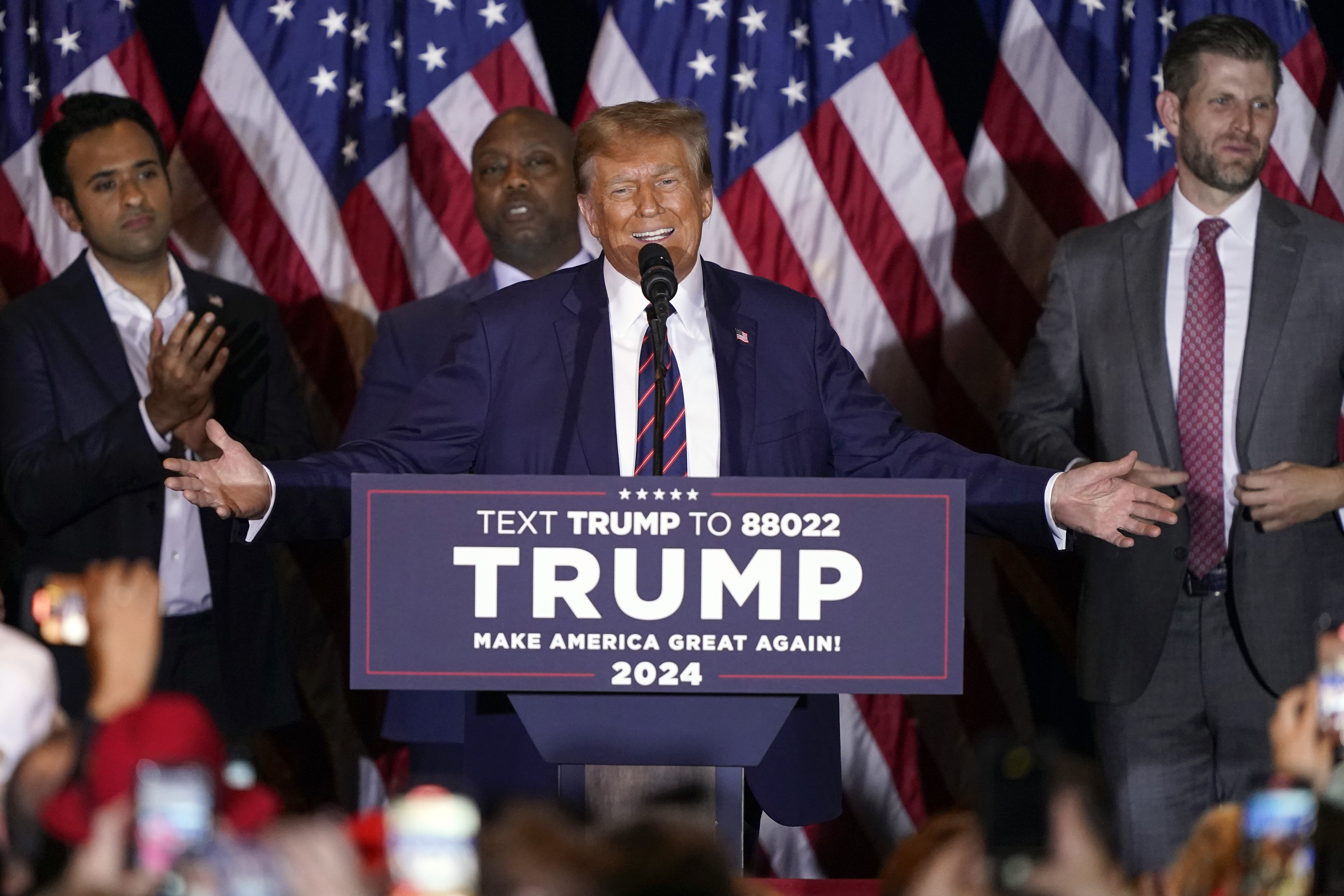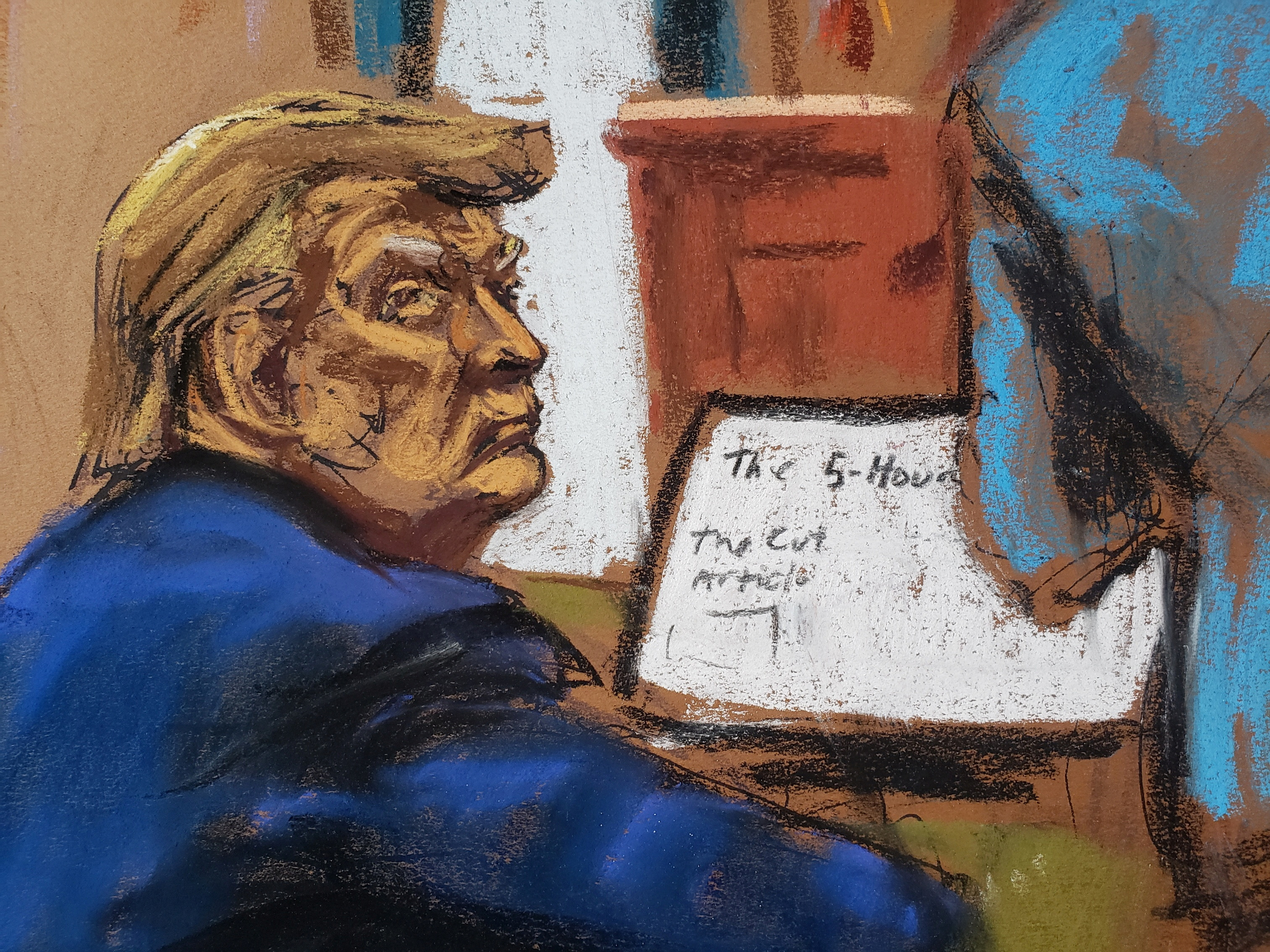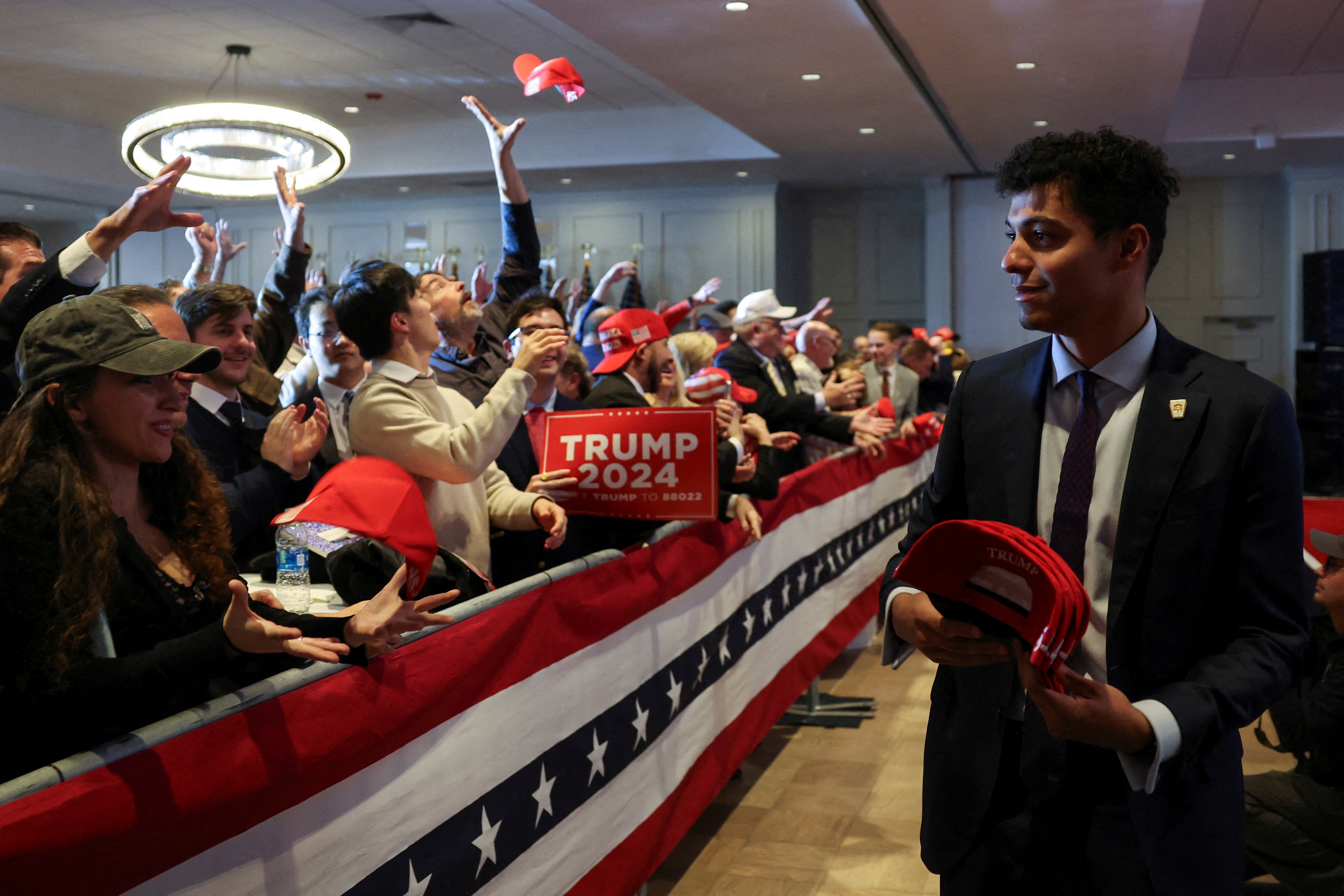
The odds that Donald Trump will be the Republican presidential candidate appear more likely by the day.
The former United States president has cemented his hold on the party nomination with convincing early victories in Iowa and New Hampshire, and his field of Republican challengers has dwindled in response.
Yet, despite his strong frontrunner position, Trump faces four criminal trials that could complicate his re-election bid.
He has been accused of mishandling classified government files, falsifying business documents to conceal a hush-money payment, and conspiring to overturn the 2020 election results in the state of Georgia.
He also faces a separate federal indictment accusing him of interference in the 2020 vote, which he lost to President Joe Biden. He has pleaded not guilty in all four cases.
But while the US Constitution allows Trump to seek the presidency even if he is convicted, a guilty verdict could affect his ability to campaign — and raise never-before-seen scenarios, experts say.

“That a major party candidate, somebody very competitive in the polls, could be facing criminal indictments, that’s unprecedented. [That he] could be going to trial during the primary season, that is unprecedented. If he were to be convicted, that would be unprecedented,” said Craig Green, a professor of law and government at Temple University.
“All of these things are really extraordinary.”
Could Trump be forced to campaign from a jail cell? Would a conviction push him to drop out? And will the criminal trials affect his electability? Here’s all you need to know.
So, Trump can run for president even if he’s convicted?
Yes. The US Constitution says any “natural born citizen” aged 35 and up, who has been a US resident for at least 14 years, can run for president.
“There’s no language in the Constitution that prohibits someone who’s convicted of running for an office,” explained Aziz Huq, a professor of law at the University of Chicago.
Some civil rights groups, however, have sought to get Trump disqualified by pointing to a little-known clause of the Constitution.
What clause?
Section 3 of the 14th Amendment — the so-called “disqualification clause” — bars people from holding US office, including the presidency, if they “have engaged in insurrection or rebellion against the same, or given aid or comfort to the enemies thereof”.
Critics say Trump’s attempts to overturn the 2020 election results would fall under the prohibition against insurrection.
Whether Trump’s candidacy can be barred under the 14th Amendment is currently an issue before the US Supreme Court. Its justices have been asked to weigh in after two states, Colorado and Maine, removed Trump’s name from their primary ballots, citing the insurrection clause.
Have people with criminal convictions run for president before?
Yes. In 1920, Socialist Party candidate Eugene V Debs campaigned for president from a federal prison in Georgia. Debs, who was jailed for sedition after challenging a wartime measure that curtailed the freedom of speech, garnered nearly one million votes.
Lyndon LaRouche Jr also ran for president in 1992 from federal prison, where he was serving out a sentence for conspiracy and mail fraud.
But Huq, the University of Chicago professor, said individuals with criminal convictions have historically “not been candidates who have been likely to win or who have been within reach of winning”.
“The Constitution is written on the assumption that the people who run for office will have been selected through some process that weeds out people who have committed alleged felonies in the past,” he told Al Jazeera.

But will the criminal trials affect Trump’s ability to campaign?
The trials could create a scheduling headache for the former president, who will be required to appear in court.
But everything depends on when the proceedings get under way, as Trump’s legal team has filed multiple motions to delay the cases or dismiss the charges against him outright.
“We don’t know which — if any — of the criminal cases could go to trial before November because there are a number of appellate proceedings seeking to stop them, or stay them,” said Frank Bowman, professor emeritus at the University of Missouri School of Law.
Appeals have already delayed at least one case. Last week, a US District Judge Tanya Chutkan postponed the start of Trump’s federal election interference case in Washington, DC, which had been set for March 4. A new schedule has not been set.
The New York fraud case, meanwhile, is scheduled to begin on March 25 but could also get pushed back.
How does this line up with the US political calendar?
Both the Democratic and Republican parties have been holding their respective nomination contests — state votes to determine each party’s presidential candidate — since the beginning of the year.
Trump won comfortably in both Iowa and New Hampshire in January, heaping pressure on his last major Republican challenger, former UN ambassador Nikki Haley, to drop out of the race.
The next contests are later this month in Nevada, South Carolina and Michigan. More than a dozen states will then hold their primaries in early March on what is known as Super Tuesday.
Republicans will officially choose their candidate at the party convention, set for mid-July in Wisconsin, while Democrats will confirm their nominee — who is almost guaranteed to be President Biden — at an August convention. The general election is on November 5.
If Republicans confirm Trump as their nominee at the convention, is that a done deal?
“Aside from illness or death, I don’t think there’s anything that could keep Trump off of the ballot in November,” said Green at Temple University.
That’s because Republican Party rules currently don’t include a “mechanism for getting him off the ballot” if he is confirmed as the candidate at July’s convention, he explained.
Meanwhile, nearly all of the delegates who will pick the Republican nominee are what’s known as bound delegates — meaning they are required to vote for a candidate based on the results of their state’s primary and party rules.
“The Republican Party has become increasingly rigorous about getting pledged delegates — no flexibility, no messing around. You win the primary, you win the votes,” Green told Al Jazeera.
In other words, the majority of the Republican delegates at the party convention will be pledged to Trump if he wins most of the state primaries. Green added that it therefore is unlikely those same delegates would pass any rule changes to allow the party to break away from the ex-president should he be convicted.
While Trump could — in theory — drop out of the race after a conviction, he has pledged not to.
Geoff Kabaservice, vice president of political affairs at the Niskanen Center, a centre-right think tank in Washington, DC, said the Republican Party “has gone way too far with Trump at this point for there to be an off-ramp from his candidacy”.
“Absent some act of God, they are stuck with him as their presidential nominee,” Kabaservice said.
Could Trump end up campaigning for the White House from a jail cell?
The chances are slim.
Even if he were convicted before November, “there’s always some period of time before sentencing”, explained Bowman at the University of Missouri.
Trump’s legal team also would almost certainly appeal any conviction and sentencing decision, thereby delaying the prospect of him spending time behind bars even further.
“Customarily, in white-collar cases, people remain free on bond pending appeal,” Bowman told Al Jazeera. “Would Trump appeal a conviction or a sentence? Of course he would. It seems unlikely a judge would remand him to custody immediately.”
So, will all of this hurt — or help — Trump’s election chances?
That’s an important question.
A December poll from the New York Times and Siena College showed that 62 percent of Republican primary voters believed Trump should remain the party’s nominee if he wins the most primary votes — even if he is convicted of a crime.
Fifty-four percent of Republican primary voters in New Hampshire also said he would still be fit for the presidency if convicted of a crime, according to exit polling by the Washington Post. That figure jumped to 87 percent among voters who backed Trump in New Hampshire last month.
The former president’s base has overwhelmingly stayed in his corner despite the four criminal indictments, which Trump has denounced as politically motivated “witch hunts”. But that could change with a conviction, said Green.
“I think there would be a slice of people who would take things more seriously at that moment. He would be a convicted felon, and those words have some weight for some voters,” he said.
A January poll by Morning Consult and Bloomberg (PDF) showed that 53 percent of registered voters in key swing states would not vote for the ex-president if he were convicted. Fifty-five percent said they wouldn’t vote for Trump if he were sentenced to prison time.
Even just having to appear in court during the election campaign could affect Trump, said Kabaservice at the Niskanen Centre.

During the Republican primaries, Trump used his legal troubles to fire up his die-hard supporters. He has even appeared in court for civil cases where his presence is otherwise not required, leading some experts to question whether his presence is a campaign tactic.
Kabaservice noted that Trump has used the cases to accuse Democrats of doing “everything in their power to stop him from becoming president again” and reiterate claims that the justice system is rigged against him.
While this strategy may work for the former president’s Make America Great Again (MAGA) backers, it will fail to appeal to more moderate Republicans, independents or even Democrats who may consider voting for him, Kabaservice said.
“The basic problem here for Trump and the Republican Party is that what works for the MAGA faithful doesn’t really play all that well outside of the bubble,” he told Al Jazeera.
The criminal trials will, in effect, not keep him from being the GOP nominee or keep him off the ballot. But they will showcase “Trump’s worst qualities for the segment of the electorate to whom that matters”.







